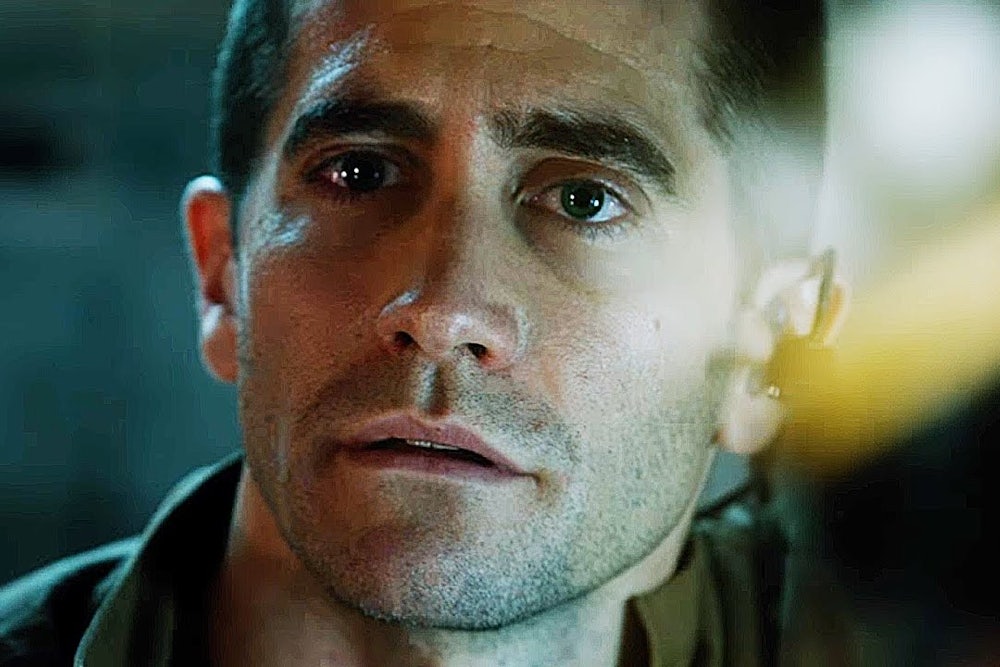To knock Life for being an Alien rip-off is to erroneously assume that this solid, junk-food thriller actually cares at all about originality. Let other people come up with blazingly unique storylines and nuanced characters—the fact that Life is totally familiar is what makes it work on its own modest, efficient terms. This is a movie about a bunch of people orbiting high above Earth on a space station that’s suddenly imperiled by a nasty alien life force that’s hell-bent on killing them. Life is just that simple—and smart enough to stay out of its own way.
The movie stars several big names, as well as some much smaller names, which ought to make it relatively easy to guess who’s going to get knocked off first. Roy (Ryan Reynolds) is a wisecracking American astronaut working alongside David (Jake Gyllenhaal), a sensitive American doctor who prefers the international space station to Earth, and Miranda (Rebecca Ferguson), a British doctor who’s a relatively new arrival onboard. As Life begins, a sample from Mars has arrived via probe, and Hugh (Ariyon Bakare), a scientist, is giddy to discover a living organism within the soil—the first sign of life beyond our planet. Named Calvin, the organism starts growing exponentially, and soon enough all hell is breaking loose on the station, a battle between man and a starfish-looking squid thing underway.
With echoes of not just Alien but also 2001 and Gravity, Life knows its place as gritty, B-movie escapism gussied up with a little star power and decent effects. Director Daniel Espinosa (who previously worked with Reynolds on the similarly worth-a-rental Safe House) understands that with well-worn material like this, it’s best to deliver the goods without a mocking wink to the audience. There’s no cheeky referencing or meta commentary in Life: Espinosa keeps everything taut and claustrophobic, barely even bothering to supply us with empathetic back stories for his characters. (One of them has a wife back home who just gave birth; another can’t use his legs; somebody else is Russian.) Life strips away any profundity or awe so that we never forget that everybody on the ship just wants to kill this damn space mollusk. Whenever anybody on screen takes a moment to express an emotion or ponder the phenomenon of being alive, you want to tell him to shut up and get back to work.
Within the confines of this constricting, pragmatic narrative, though, Life does find enough room to spring a few surprises. Going into any more detail would risk spoilers, however, and with a movie like this you need to preserve every twist possible so that you feel like you’re getting your money’s worth. But let it be said that the actor body count doesn’t go entirely in least-famous-to-most-famous order—and that people who don’t seem like they’re that important to the story end up surviving longer than anticipated.
Plus, the big names dial back their personalities significantly, contributing to the film’s gritty, ensemble feel and its air of unpredictability about who will live and die. Reynolds’s preternatural likeability shines through even when he’s more muted, while Gyllenhaal retains his soft-spoken sweetness, despite his character being barely more animated than the flashing control panels around him. Ferguson became an international sensation thanks to her fabulous work in Mission: Impossible – Rogue Nation, but the frustration has been that, since then, she hasn’t found a worthy role to capitalize on that success. Life doesn’t provide that for her, but she brings the same mixture of toughness and vulnerability that was on display in that Tom Cruise vehicle she just about stole from him.
The stars’ commitment to Life’s uninspired but consistently gripping script helps sell these secondhand goods. But they don’t have to strain too hard because Espinosa understands his film’s true strength, which isn’t really his human cast. Calvin’s slithering, unstoppable menace is different enough from Alien’s alien to give you the willies in its own ways. (That said, it’s a pity Life blatantly steals an iconic moment from Ridley Scott’s classic sci-fi horror—the less you make the audience think of that 1979 film, the better.)
Anyone looking for some grand metaphor within Calvin’s furious feasting on the space station’s crew is wasting his time—and that’s ultimately what proves so terrifying about the creature. Not imbued with thematic import or anything resembling character motivation, Calvin just wants to eliminate these people so it can have all the station’s precious oxygen for itself. This alien really doesn’t have any fiendish strategy, and no personality ever emerges—the astronauts can’t rationalize with it, and nothing they try seems to kill the little bugger. It’s like a nightmare cockroach, except in outer space.
As studios increasingly turn their attention toward big tentpoles and event movies, there’s been much lamenting that Hollywood has lost its ability to make risky, ambitious films. But an unpretentious movie like Life argues that studios have also moved away from respectable genre pictures—movies that were never considered art, but at least rattled your cage with precision. No one need celebrate Life too loudly, but it goes about its grubby business with a bracing clarity and ruthlessness. In that way, this film is well-matched with its rampaging extra-terrestrial.
Grade: B-
Grierson & Leitch write about the movies regularly for the New Republic and host a podcast on film, Grierson & Leitch. Follow them on Twitter @griersonleitch or visit their site griersonleitch.com.
